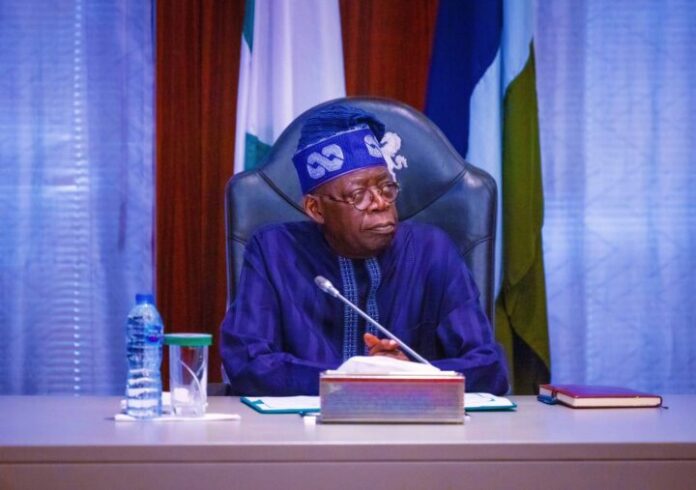In a monumental stride towards resolving Nigeria’s energy crisis, President Bola Ahmed Tinubu has secured a $1.1 billion loan from the African Development Bank (AfDB), aimed at providing electricity for 5 million Nigerians by 2026. This ambitious initiative, announced by Tinubu during his speech at the recently concluded Mission 300 Africa Energy Summit in Dar es Salaam, Tanzania, marks a pivotal moment in Nigeria’s energy transformation.
The special adviser to the president on Information and Strategy, Bayo Onanuga, confirmed the development in a statement on the President’s behalf. Tinubu, who was represented by the Minister of Power, Adebayo Adelabu, emphasized the urgency and scale of the energy challenge, underscoring the role of such partnerships in tackling Nigeria’s power deficiencies.
“Energy access remains one of the most pressing challenges facing Nigeria today. With the AfDB’s $1.1 billion loan, we are one step closer to providing reliable and affordable electricity for millions of Nigerians,” President Tinubu remarked in his statement. He also highlighted the $200 million investment in the Nigeria Electrification Project, an initiative expected to electrify 500,000 people by 2025.
AfDB’s Investment to Power Africa’s Future
The $1.1 billion loan is part of a broader collaboration between the Federal Government and AfDB, aimed at enhancing energy access across the continent. Tinubu’s vision, which calls for comprehensive partnerships, will see Nigeria benefiting from a robust mix of solar, wind, and grid infrastructure development.
In addition to the loan, Tinubu announced plans to secure an additional $1.2 billion from AfDB for the Nigeria Desert-to-Power program, a project designed to harness the power of the sun to light up the Northern parts of Nigeria. This initiative alone is expected to provide electricity to an additional 2 million Nigerians by 2026.
Another key investment discussed at the summit is the $500 million facility set to support the Nigeria-Grid Battery Energy Storage System, which promises to strengthen the national grid’s reliability and boost energy distribution efficiency.
“We are committed to ensuring that no Nigerian is left in the dark. These investments are vital to securing energy access for millions of our citizens, and we will not rest until this goal is achieved,” Tinubu declared.
The Race to Electrify Nigeria
The stakes for Nigeria’s energy sector could not be higher. With a population nearing 230 million, Nigeria is home to some of the largest energy deficiencies on the continent. Despite having abundant natural resources, the country’s energy access rate remains shockingly low, with millions of people relying on unreliable and expensive power sources.
As part of his address, Tinubu recognized the African Development Bank’s transformative role in propelling Africa toward sustainable energy solutions. “Africa is rich in energy resources, yet millions of our citizens still lack access to reliable and affordable energy. This is a situation we cannot tolerate, and it is our duty to take collective action to change it,” he said.
To ensure that these ambitious targets are met, Tinubu has also focused on improving access to mini-grids and solar-powered standalone systems. The World Bank, through its $750 million support, is set to play a pivotal role in expanding Nigeria’s distributed energy access, which is projected to reach over 16 million Nigerians by 2026.
Partnerships for Africa’s Energy Future
At the summit, President Tinubu expressed gratitude to several international stakeholders who have been instrumental in these energy projects. He specifically thanked Ajay Banga, President of the World Bank Group, for the bank’s continued support in bringing affordable energy to Africa.
“Ajay Banga’s vision has been critical in shaping the future of energy access for our people. Alongside Akinwunmi Adesina, President of the African Development Bank, the World Bank has shown what true collaboration looks like. We are on the path to a brighter, electrified future for Nigeria,” Tinubu said.
He also acknowledged other contributors, including the UN’s Sustainable Energy For All initiative, the Rockefeller Foundation, and the Global Energy Alliance for Development, all of whom have been driving forces in the battle for energy equity.
The Federal Government’s commitment to these international partnerships highlights the importance of leveraging both domestic and foreign investment in tackling the country’s pressing power issues.
Economic Impacts and Job Creation
The investments secured by Tinubu are not just about powering homes and businesses, they also promise to create jobs and stimulate local economies. The Nigeria Desert-to-Power project, for instance, is expected to create thousands of jobs in the renewable energy sector, particularly in the northern regions, where solar power has immense potential.
In addition to job creation, the government has highlighted the long-term economic benefits of reliable electricity. Industries that have struggled due to inconsistent power supply—such as manufacturing, agriculture, and technology—are set to experience a significant boost in productivity and growth, making the country more competitive in the global market.
The anticipated improvements in power infrastructure will also enhance the business environment, attracting both local and foreign investors looking for stability in their operations.
The Road Ahead: A Call to Action
Despite these promising developments, challenges remain. The path to achieving Tinubu’s electrification goals will require more than just financial investments. Effective implementation, robust regulatory frameworks, and the development of local capacities will be crucial in ensuring that the benefits of these projects are felt by all Nigerians.
In his closing remarks, Tinubu called for a unified approach from both government and private sectors, stressing the importance of collaboration to bring the country closer to achieving universal electricity access.
“We must work together as a nation, as a continent, and as a global community to ensure that the dream of universal electricity access becomes a reality for all Africans,” he said.
As Nigeria embarks on this transformative journey, the $1.1 billion loan from AfDB is a major step forward, but it is clear that the work is far from over. With continued focus, determination, and international partnerships, the light at the end of Nigeria’s energy crisis is finally within reach.

